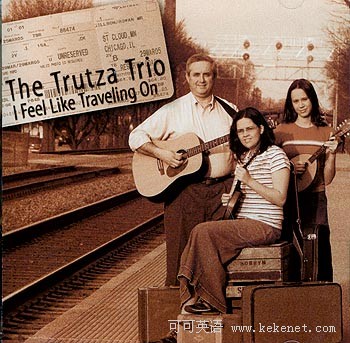
Dialogue Script 1 對(duì)話(huà)原文 1
Monica: Hi, Brian, what's with the suitcase?
Brian: I've decided to go on a trip.
Monica: Are you leaving today?
Brian: No, I just bought this suitcase today for the trip. I'll take it home tonight.
Monica: Where are you going on your trip?
Brian: To Beijing.
Monica: Beijing, in China? Are you going alone?
Brian: No, I'm going with Lily.
Monica: Really! She'll be very excited.
講解:
1. trip, journey, voyage 和 travel的區(qū)別:
(1) trip:是旅行和訪問(wèn)的總稱(chēng),它是最常用的一個(gè),經(jīng)常用來(lái)代替 travel 。
比如: How long does the trip last?這次旅行將歷時(shí)多久?
He makes frequent trips to London on business.他經(jīng)常出差去倫敦。
(2)journey:常指去訪問(wèn)某地并從訪問(wèn)過(guò)的地方回來(lái)的整個(gè)行駛過(guò)程,一般指陸地上的旅行,而且有預(yù)定的地點(diǎn)。比如:We had a terrible journey. 我們的這次旅行糟糕透了。
(3)voyage:專(zhuān)指橫跨海洋的水上遠(yuǎn)程旅行,常常到達(dá)一個(gè)遙遠(yuǎn)的國(guó)家,現(xiàn)在也可指空中旅行。比如:
He is going on a voyage round the world. 他打算去環(huán)游世界。
(4)travel:泛指旅行。比如:travel industry 旅游業(yè) travel service/travel agency旅行社
We traveled for over fifteen hours. 我們旅行了15個(gè)小時(shí)以上了。
2. suitcase,旅行箱,行李箱,例如: Linda put clothes in a suitcase to get ready for her trip.林達(dá)收拾好衣服放進(jìn)行李箱準(zhǔn)備去旅游了。 再補(bǔ)充一個(gè)pack這個(gè)詞,動(dòng)詞,打包的意思。例如: I need to pack my suitcase for the trip. 我要去旅游得開(kāi)始打包了,就是得開(kāi)始收拾行李了。還可以簡(jiǎn)單地說(shuō), I have packed for my trip. 我已經(jīng)收拾好行李了。
3. What's with the suitcase?當(dāng)中的What's with something or somebody? 表示某事某物是怎么回事,比如: What's with the TV?那臺(tái)電視機(jī)是怎么回事? What's with Tom today? He looks so weird. 今天湯姆是怎么了? 看起來(lái)怪怪的。
4. go on a trip.表示去旅行,后面再加一點(diǎn)東西,就變成 go on a trip to some place, 例如:I'm going on a trip to Europe. 我要去歐洲旅行。
5. go alone自己去;go with somebody和某人去。











